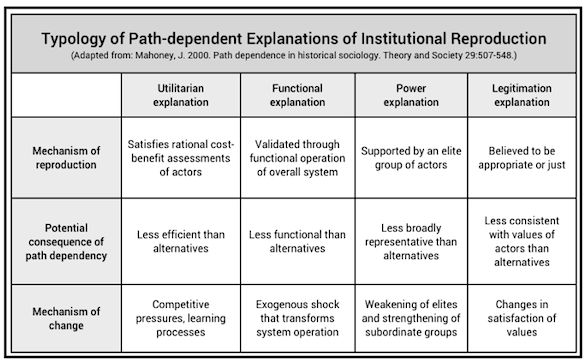When Russell Brand says, “Voting is tacit complicity with the system” — in last week’s BBC interview, viewed 7 million times and counting — he describes political entrenchment as a type of path dependence, and advocates for tactics to delegitimize the system.
Here are a couple of other sources for seeing politics through a systems lens.
From “Increasing Returns, Path Dependence, and the Study of Politics,” by Paul Pierson (2000):
[When] path dependent processes are at work, political life is likely to be marked by four features:
- Multiple equilibria: Under a set of initial conditions conducive to increasing returns, a number of outcomes — perhaps a wide range — are generally possible.
- Contingency: Relatively small events, if they occur at the right moment, can have large and enduring consequences.
- A critical role for timing and sequencing: In increasing returns processes, when an event occurs may be crucial. Because earlier parts of a sequence matter much more than later parts, an event that happens “too late” may have no effect, although it might have been of great consequence if the timing had been different.
- Inertia: Once an increasing returns process is established, positive feedback may lead to a single equilibrium. This equilibrium will in turn be resistant to change.
From “Path Dependence in Historical Sociology,” by James Mahoney (2000), a typology of path-dependent explanations of institutional reproduction (adapted from the original):


